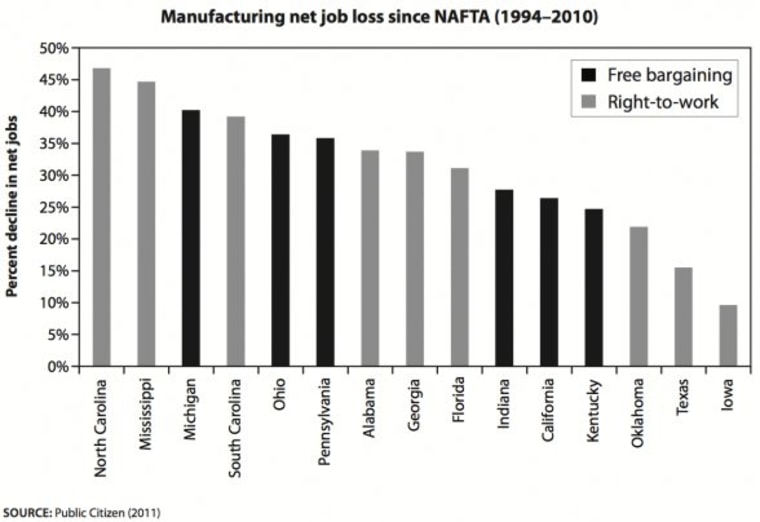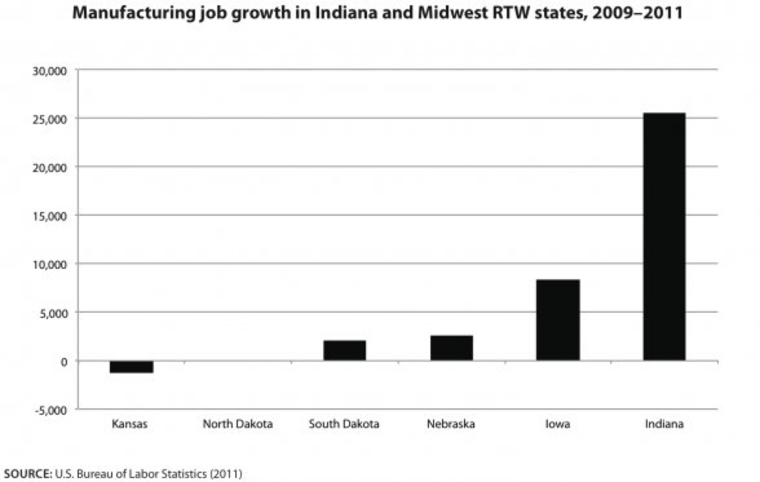Tonight on the show, we're going to look at the showdown in Indiana over an anti-union bill now in the state legislature. Indiana Republicans are pushing a law that would effectively ban union shops. This type of legislation is known as a Right to Work bill.
Gordon Lafer at the Economic Policy Institute writes that the Right to Work name is deceptive:
Despite the name, right-to-work laws do not confer any sort of right to a job. Rather, they dilute union bargaining strength by making it harder for workers’ organizations to sustain themselves financially. Proponents argue that by weakening labor laws, RTW will lure outside companies—particularly manufacturers—into the state.In Indiana and elsewhere, large sums of money have been devoted to backing RTW bills, with lobbyists claiming that RTW significantly improves both the number of jobs in a state and the wages people earn because companies that had avoided the state will flock there. The evidence shows that these claims are completely without scientific foundation.
He includes the chart above, which shows Indiana creating far more manufacturing jobs than states with Right to Work laws. In the chart below, you can see that being a Right to Work state has by no means been a shield against job loss. More on the show tonight.

